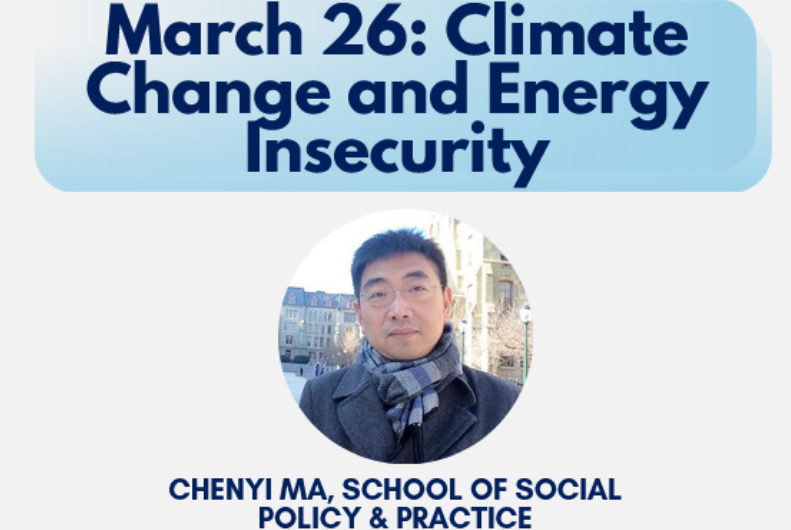Climate 101: March
Join us for March's Climate 101 event with Chenyi Ma, Research Assistant Professor in the School of Social Policy & Practice, where he will talk about Climate Change and Energy Insecurity.

The Environmental Innovations Initiative's Climate 101 series demystifies climate change and its link with a diversity of disciplines. Experts from across Penn share how they think about climate through the lens of their research and teaching, helping to raise our climate literacy and prepare us to tackle one of the planet's greatest challenges: the climate crisis.
Join us for March's Climate 101 event with Chenyi Ma, Research Assistant Professor in the School of Social Policy & Practice, where he will talk about Climate Change and Energy Insecurity.
Abstract: Understanding Maladaptive Responses to Energy Insecurity in the Era of Climate Change
Climate change demands adaptation, yet not all responses are beneficial. While much attention has been given to adaptive strategies, maladaptive behaviors—responses that inadvertently increase vulnerability—are equally critical to understand. This talk explores how U.S. households coped with energy insecurity during the COVID-19 pandemic, a period of compounded crises. Faced with financial strain and stay-at-home orders, many engaged in maladaptive behaviors—such as forgoing essential expenses or enduring unsafe indoor temperatures—both of which pose serious risks to individual and public health. This study examines key risk factors and the role of the LIHEAP, the single largest federal social welfare program providing energy assistance to low-income households, alongside the emergency temporary policy measures of utility shutoff moratoriums implemented as disaster relief. Findings reveal stark racial/ethnic and socioeconomic disparities in energy insecurity, largely driven by differences in exposure to extreme weather, energy consumption patterns, and access to energy-efficient resources. By exposing these structural inequities, this talk highlights the urgent need for targeted strategies that enhance energy efficiency and strengthen resilience among at-risk populations.
All events are Hybrid, and are held in Annenberg School for Communication, Room 300. Please register below.